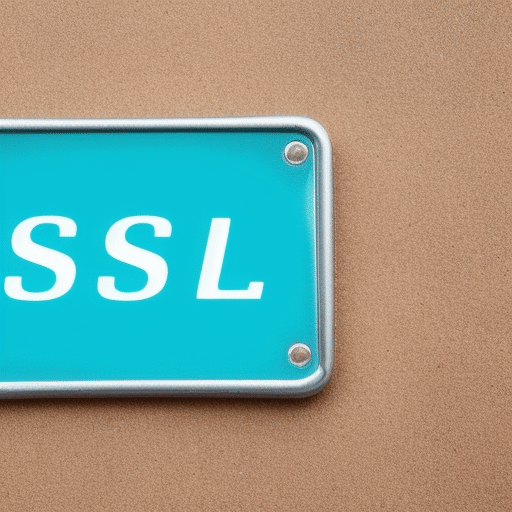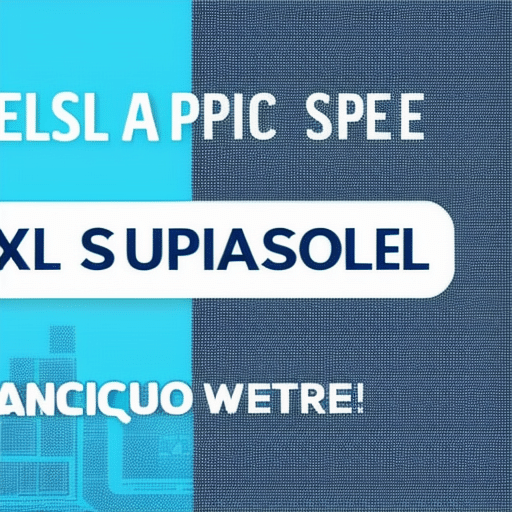In today's digital world, online security is a constant concern for users and businesses alike..
One of the most important tools for ensuring the security of information transmitted over the Internet is SSL (Secure Sockets Layer).
But what exactly is SSL, how does it work, and how important is it to online security? In this article, we will explore these questions and many more.
We will also discuss the differences between SSL and TLS, how to tell if a web site uses SSL, and the advantages and disadvantages of implementing SSL.
In addition, we will provide a step-by-step guide to install an SSL certificate on your web site.
Ultimately, we hope to help our readers understand the importance of implementing SSL on your website to protect sensitive information and improve user confidence.
What is SSL and how does it work?
SSL (Secure Socket Layer) is a security protocol that allows secure transmission of data over the Internet.
It is used to protect sensitive information such as passwords, credit card numbers and other personal information that is exchanged between a web server and a web browser.
SSL works through the use of a digital certificate that authenticates the identity of the web server and encrypts the data transmitted between the server and the browser.
When a user accesses a secure website with SSL, their browser verifies the authenticity of the server's certificate and establishes a secure connection.
Once the connection is established, the data transmitted between the server and the browser is encrypted, preventing anyone from intercepting or reading it.
In addition, SSL also offers protection against phishing and phishing attacks by verifying that the website being accessed is authentic and not a forgery created by an attacker.
In summary, SSL is an essential technology for ensuring the privacy and security of online users by enabling the secure transmission of confidential information.
The importance of SSL for online security
The importance of SSL for online security is fundamental.
The SSL (Secure Sockets Layer) protocol is a security standard that allows the encryption of information transmitted over the Internet, protecting it from possible hacker attacks or interception by third parties.
By using SSL, a secure connection is established between the server and the user's browser, ensuring that the data transmitted is private and cannot be read by unauthorized persons.
In addition, SSL also helps protect against phishing by certifying that the website being accessed is legitimate and not a fake page created by cybercriminals to steal personal or financial information.
This is especially important for online transactions such as purchases or bank transfers.
Failure to use SSL can have serious consequences for online security, as personal and financial data can easily be intercepted and used for malicious purposes.
Therefore, implementing SSL on a website is a necessary measure to ensure the privacy and security of users.
In summary, the importance of SSL for online security lies in its ability to protect information transmitted over the Internet and certify the authenticity of the websites visited.
Not using SSL can jeopardize the privacy and security of users, so its implementation is essential for any website that handles sensitive information.
Differences between SSL and TLS
Although SSL and TLS are security protocols used to protect online information, there are some key differences between them.
SSL (Secure Sockets Layer) was developed by Netscape in the 1990s and TLS (Transport Layer Security) is its successor.
The main difference between the two is that TLS offers better security than SSL.
While SSL uses a server-client authentication process, TLS uses a bidirectional process, meaning that both the server and the client authenticate each other.
In addition, TLS uses stronger encryption algorithms than SSL, making it less vulnerable to cyber attacks.
Another aspect to highlight is that TLS is more flexible than SSL, since it allows compatibility with different encryption versions and algorithms.
In terms of implementation, TLS requires fewer server resources than SSL and is faster and more efficient in terms of performance.
In summary, although SSL and TLS share many similar aspects, TLS is an enhanced and more secure version of SSL that offers greater protection for online information.
How do I know if a website uses SSL?
Knowing whether a website uses SSL is a very simple task that can be performed by any user.
The first indication that a Web site uses SSL is the URL, which should begin with "https://" instead of "http://".
In addition, a closed padlock icon will appear in the browser address bar, which means that the connection is encrypted and secure.
By clicking on this icon, you can obtain additional information about the SSL certificate used by the website.
Another indication that a Web site uses SSL is the use of security seals or logos on the page.
These stamps are usually located in visible places such as the footer or the home page.
These seals are issued by certifying companies and guarantee the authenticity and security of the website.
It is important to note that not all websites use SSL, especially those that do not require the exchange of confidential information. as blogs or news sites.
However, any website requesting personal or financial information must use SSL to protect such information.
In short, knowing whether a website uses SSL is an easy task that can be performed by any user.
The presence of "https://" in the URL and the closed padlock icon in the address bar are the main indicators that a website uses SSL.
In addition, security seals or logos can also be used to verify the authenticity and security of the website.
Advantages and disadvantages of using SSL
The use of SSL on websites has its advantages and disadvantages.
Among the advantages, SSL provides a secure connection between the server and the user's browser, preventing third parties from intercepting the transmitted information.
In addition, the SSL certificate allows the authenticity of the website to be verified and ensures that data is being sent to the correct destination.
In addition, the use of SSL can improve search engine rankings, as Google considers security to be an important factor in the ranking of websites.
However, there are also some disadvantages to using SSL.
First, cost can be a limiting factor for some companies, especially if they need to purchase SSL certificates for multiple domains or subdomains.
In addition, improper implementation of SSL may cause compatibility issues with some browsers or mobile devices.
It may also affect website performance due to the overhead of data encryption and decryption processing.
In summary, although the use of SSL has its advantages and disadvantages, it is essential to ensure the security and protection of data transmitted over the Internet.
It is important to carefully evaluate the costs and benefits before implementing SSL on a web site, and to ensure that best practices are followed to avoid technical or performance issues.
Steps to install an SSL certificate on your website
To install an SSL certificate on your website, there are several steps to follow.
First of all, you must acquire the SSL certificate from a trusted certificate authority.
Once you have obtained the certificate, you will need to generate a Certificate Signing Request (CSR) on your web server.
The CSR request contains information about your website and is used to create a signed SSL certificate.
You must then submit the CSR request to the certification authority along with any other required information, such as verification of domain ownership.
Once the certificate authority has verified all the information, it will send you the signed SSL certificate file.
Next, you must install the SSL certificate on your web server.
This may vary depending on the type of server you are using, but generally involves copying and pasting the certificate file into the web server configuration and restarting the server.
Once you have installed the SSL certificate on your web server, you will need to update all internal links on your website to point to HTTPS instead of HTTP.
It is also important to ensure that all images, scripts and other external resources are loaded via HTTPS.
Finally, you should test thoroughly to make sure that everything works correctly and that there are no browser or mobile device compatibility issues.
In short, install an SSL certificate on your site web requires follow several important steps to ensure proper and effective implementation.
It is essential to take all necessary measures to protect the online security of your users and maintain the integrity of your website.
Conclusion: The importance of implementing SSL on your website
In conclusion, implementing SSL on your website is a fundamental measure to guarantee the security of your users and protect the information shared through your platform.
The use of SSL certificates makes it possible to establish a secure connection between the server and the user's browser, preventing third parties from intercepting or accessing the transmitted data.
In addition, the use of SSL also helps to improve users' trust in your website by giving them peace of mind that their personal data is protected.
However, it is important to note that implementing SSL requires additional effort on the part of the website owner, either in terms of time or money.
It is necessary to purchase an SSL certificate and perform the corresponding installation, as well as to keep it updated and renew it periodically.
Despite this, the advantages of implementing SSL are significant and fully justify the effort invested.
In summary, if you want to provide a secure and reliable experience to your users, do not hesitate to implement SSL on your website.
In conclusion, we can say that SSL is a crucial technology for online security.
Their use makes it possible to protect the information exchanged between a website and its visitors, preventing it from being intercepted by malicious third parties.
In addition, SSL also helps build user confidence by showing that the website is authentic and committed to the security of their data.
Although there are some disadvantages and limitations to its implementation, the benefits far outweigh the costs and it is essential that websites use it.
However, we must continue to reflect on how to improve and strengthen this technology in the face of the new threats and challenges that constantly arise in the digital world.
Online security is an increasingly important issue in today's society and we must always be aware of the best practices and solutions available to protect our information and privacy.




